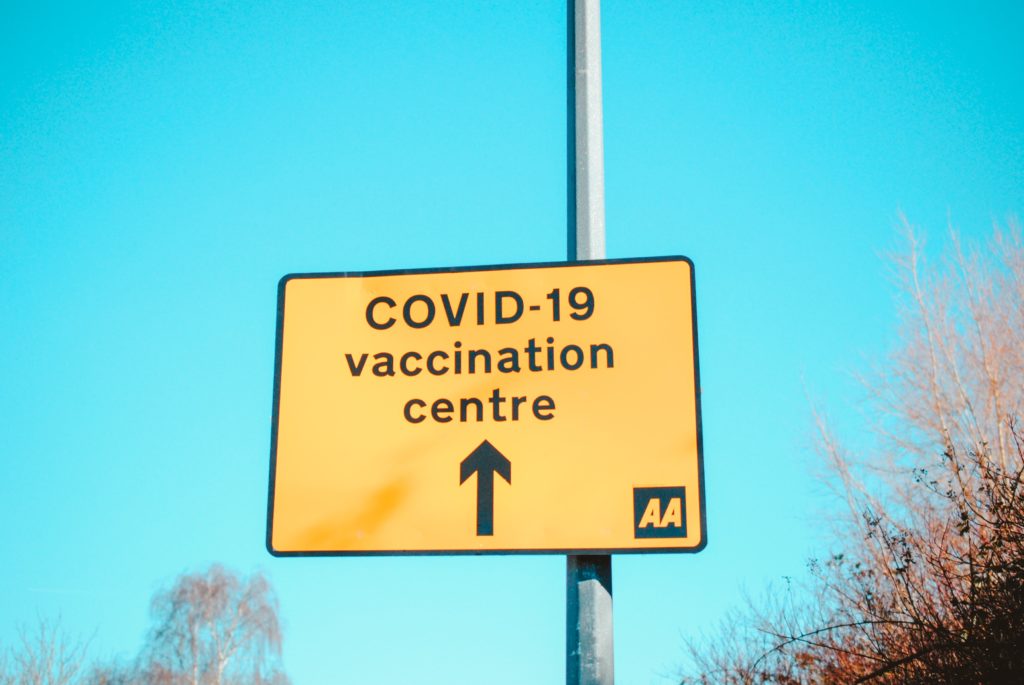The largest ever study of COVID-19 vaccine messaging shows that emphasising the personal benefits of vaccination may be the most effective way to persuade people who are sceptical about the jab.

For the one in ten who say they won’t take a COVID-19 vaccine, messaging that focuses on personal rather than collective benefits is more effective.
Researchers from the University of Oxford, funded by the NIHR Oxford Biomedical Research Centre (BRC) and the Oxford Health BRC, tested the responses of a representative group of 18,885 UK adults to a variety of COVID-19 vaccine messaging. The results have been published in the journal The Lancet Public Health.
The Oxford Coronavirus Explanations, Attitudes, and Narratives Survey (OCEANS III), revealed that the most effective way of encouraging strongly vaccine-hesitant individuals – that is, those who report that they will avoid being vaccinated for as long as possible or will never get vaccinated – to consider vaccination was to emphasise the personal benefit of the jab, highlighting the fact that you can’t be sure, even if you’re relatively young and fit, that you won’t get seriously ill or struggle with long-term COVID-related problems.
This group was also receptive to information that directly addressed fears that the vaccines have been developed too fast to be safe and effective.
The study lead, Professor Daniel Freeman of the University of Oxford’s Department of Psychiatry, said: “Much of the official messaging around COVID-19 vaccination draws on the idea of collective responsibility – that it benefits all of us to get the jab. For most people in the UK, it’s a message that definitely resonates. But for the significant minority of people who remain sceptical about COVID-19 vaccination, another approach may be needed.
“Our study suggests that the best approach now may be putting personal benefits front and centre in media campaigns. There may be two things going on here. First, if you don’t trust the safety of the vaccines, you’ll be worried about what getting the jab will do to you. The decision-making process gets dominated by personal risk concerns. The best way to counter those concerns, therefore, is to highlight the opposite: personal benefits. Second, we know that people who are vaccine hesitant are more likely to feel marginalised. People who feel that society does not care about them may be less likely to be receptive to messaging that relies for its effectiveness on a sense of belonging.”
In the OCEANS III study, participants were randomly asked to read one of ten texts, each of which provided different information about the vaccines. Some texts emphasised the benefits for society as a whole; others addressed concerns about speed of development and testing; and others focused on the implications for individuals. After reading their allocated text, participants completed an assessment of willingness to be vaccinated for COVID-19.
Since the start of the COVID-19 vaccination programme in the UK in December 2020, acceptance rates in the population appear to have increased substantially. In December half of people taking part in OCEANS-II said that they would get the vaccine as soon as possible, where now in OCEANS-III almost three quarters of participants said they’d get the vaccine as soon as possible. Nevertheless, nearly one in ten people remain strongly vaccine-hesitant.
Professor Freeman continues: “The vaccination programme in the UK has gone well, which has helped to lift vaccine acceptance rates even higher, but vaccine-hesitancy has not disappeared. The effectiveness of the COVID-19 vaccination programme depends on mass participation: the greater the number of people vaccinated, the less risk to us all. It is therefore crucial that as many people as possible are willing to get the jab. We must remember too that COVID-19 in all its variant forms is unlikely to vanish. It will most likely be necessary to vaccinate the population on a regular and continuing basis. This high-stakes communications challenge will confront us for many years to come.’

Professor Andrew Pollard (pictured left), Director of the Oxford Vaccine Group and the Oxford BRC Co-theme Lead for Vaccines, said: “This trial identifies the importance of emphasis on personal benefit of vaccination when discussing the merits of COVID-19 vaccines to improve uptake, but we need also to remember the importance of being vaccinated to protect our families and colleagues from getting the virus from us, the impact on them and the health systems when we become ill with the coronavirus, and the delay in the end of the pandemic, with grave consequences on economies and society, that will be caused by vaccine refusal.”
The Oxford BRC Director, Professor Helen McShane, a Professor of Vaccinology at the University of Oxford, highlighted that: “There has never been a more important time to understand the underlying causes of vaccine hesitancy and then to use this knowledge to directly address it.
“We have highly effective COVID-19 vaccines, but there is also a crucial psychological aspect to their successful deployment. This large-scale trial shows the messaging that may make a difference in vaccine up-take. As Director of the NIHR Oxford Biomedical Research Centre, I am delighted to see the results of this fruitful collaboration between the two Oxford BRCs.”
The Oxford Coronavirus Explanations, Attitudes, and Narratives Survey (OCEANS III) was conducted between 19 January and 5 February 2021 with 15,014 UK adults, quota sampled to match the population for age, gender, ethnicity, income and region. Recruitment continued to 18 February to recruit 3,841 additional vaccine-hesitant adults.